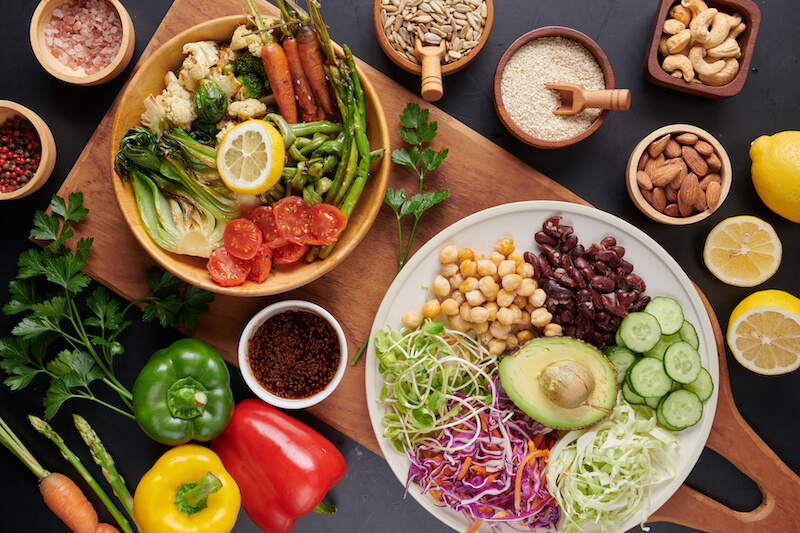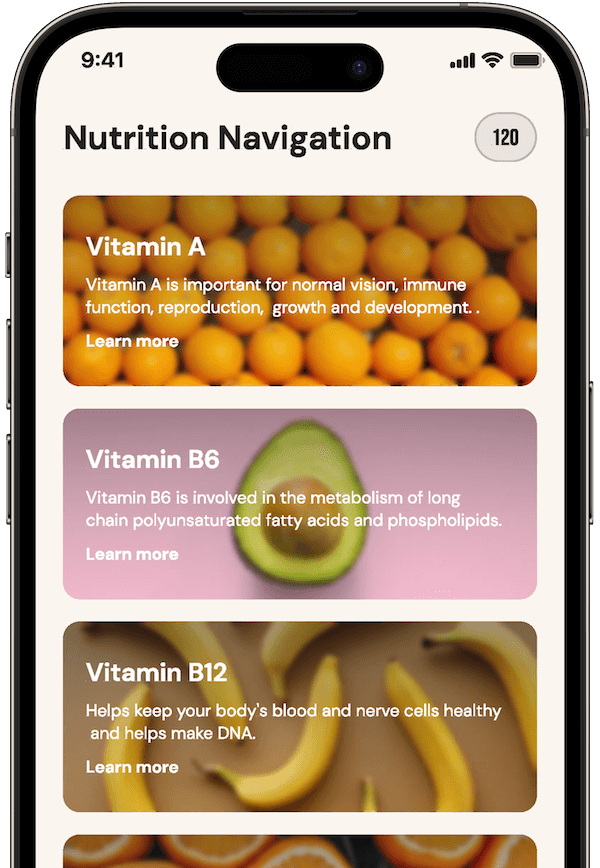As someone who has personally suffered from adenomyosis, I understand the frustration and pain that comes with this condition. It wasn’t until I made significant lifestyle and dietary changes that I saw a real improvement in my symptoms. As a certified nutrition coach from the Institute of Integrative Nutrition in New York, I’ve dedicated my career to helping others manage their health through nutrition and wellbeing. One of the most effective ways I’ve found to manage adenomyosis is by reducing inflammation in the body.
Reducing adenomyosis inflammation involves adopting an anti-inflammatory diet, incorporating regular exercise, managing stress, and using natural remedies and supplements. These strategies help lower inflammation and alleviate adenomyosis symptoms, improving overall quality of life.
What is Adenomyosis and How Does Inflammation Affect It?
What are the Symptoms of Adenomyosis?

Adenomyosis occurs when the inner lining of the uterus breaks through the muscle wall of the uterus. This can lead to symptoms such as heavy menstrual bleeding, severe cramps, and chronic pelvic pain. Inflammation exacerbates these symptoms, making daily life quite challenging.
How Does Inflammation Worsen Adenomyosis Symptoms?
Inflammation can intensify the pain and bleeding associated with adenomyosis. When the body is in a state of chronic inflammation, it can lead to increased menstrual pain and discomfort, making it harder to manage the condition.
Inflammation is essentially the primary cause of many diseases, particularly hormonal imbalances. Chronic inflammation can disrupt normal hormone function, leading to conditions like adenomyosis, endometriosis, and other reproductive health issues. By addressing inflammation, we can significantly improve hormonal health and reduce the severity of adenomyosis symptoms.
Why Reducing Inflammation is Crucial for Managing Adenomyosis

Reducing inflammation is key to managing adenomyosis symptoms. By lowering inflammation, you can decrease pain, reduce heavy bleeding, and improve overall well-being. This is why focusing on anti-inflammatory strategies is so important for those with adenomyosis.
Moreover, reducing inflammation can help prevent future health issues, including other inflammatory conditions. A body free of chronic inflammation functions better overall, with improved immune response, better digestion, and balanced hormone levels.
This holistic approach to health not only alleviates current symptoms but also promotes long-term wellness and disease prevention.
Dietary Changes to Reduce Adenomyosis Inflammation
What Foods Should You Avoid to Reduce Inflammation?

To decrease adenomyosis inflammation, it’s essential to avoid foods that can cause inflammation. This includes processed foods, refined sugars, and trans fats.
These foods can trigger inflammatory responses in the body, worsening adenomyosis symptoms. *Amini, L., et al. (2018) conducted a systematic review highlighting the significant impact of nutrition on women’s health issues such as endometriosis and adenomyosis, which underscores the importance of dietary interventions in managing inflammation and related symptoms. Some specific foods to avoid are:
- Processed meats such as sausages and bacon
- Sugary snacks and beverages like sodas and candy
- Refined carbohydrates such as white bread and pastries
- Fried foods and fast foods
- Foods high in trans fats like margarine and certain baked goods
If you want to know how to improve your adenomyosis, start by avoiding these foods. For a full list of all foods that trigger adenomyosis, check out my detailed article here.
What Anti Inflammatory Foods Can Help with Adenomyosis?

Incorporating anti-inflammatory foods into your diet is one of the best practices to reduce inflammation in adenomyosis. Foods rich in omega-3 fatty acids, such as salmon, chia seeds, and walnuts, are excellent choices.
Additionally, leafy greens, berries, and turmeric can help reduce inflammation. Some specific anti-inflammatory foods to include are:
- Fatty fish like salmon, mackerel, and sardines
- Nuts and seeds, including chia seeds, flaxseeds, and almonds
- Leafy greens such as spinach, kale, and Swiss chard
- Berries like blueberries, strawberries, and raspberries
- Spices and herbs, including turmeric, ginger, and garlic
- Olive oil and other sources of healthy fats
- Vegetables like broccoli, Brussels sprouts, and bell peppers
Another natural remedy I have been using for a while is celery juice, which has helped a lot. Incorporating celery juice into your daily routine can further reduce inflammation and support overall health.
Lifestyle Modifications to Manage Adenomyosis Inflammation
How Can Regular Exercise and Stress-Reduction Techniques Help?
Regular exercise is a powerful way to reduce inflammation caused by adenomyosis. Activities like yoga, swimming, and walking can help. Additionally, stress management techniques such as meditation and deep-breathing exercises can lower stress levels and reduce inflammation.
How Does Quality Sleep Impact Inflammation and Adenomyosis?
Getting quality sleep is crucial for reducing inflammation. Lack of sleep can lead to increased stress and inflammation, worsening adenomyosis symptoms. Aim for 7-9 hours of sleep per night to help manage adenomyosis-related inflammation.
Natural Remedies and Supplements for Adenomyosis Inflammation
Which Herbs, Spices, and Supplements are Anti Inflammatory?
Natural remedies for adenomyosis can be highly effective. Herbs and spices like turmeric, ginger, and green tea have anti-inflammatory properties. Supplements such as omega-3 fatty acids and magnesium citrate can also help reduce inflammation. Some other effective natural remedies and supplements include:
- Omega-3 fatty acids from fish oil or flaxseed oil
- Curcumin supplements derived from turmeric
- Green tea extract
- Ginger capsules or fresh ginger
- Boswellia (frankincense) supplements
- Vitamin D
Additionally, magnesium citrate has been a game changer for me, significantly reducing my inflammation and improving my overall well-being. These natural remedies can provide significant relief from adenomyosis symptoms and improve your quality of life.
How to Start Lowering Inflammation Through Your Diet
Lowering inflammation through your diet can seem overwhelming at first, but with the right tools and guidance, it becomes manageable. One way to make this process easier is by using the Unprocessed app.
The app helps you keep track of your food intake, allowing you to see which foods help reduce inflammation and which ones result in flare-ups. By monitoring your diet closely, you can make more informed choices that support your health.

Additionally, the Unprocessed app offers features that help you:
- Track your nutrient intake to ensure you’re getting enough anti-inflammatory nutrients
- Log your meals and symptoms to identify patterns and triggers
- Receive personalised nutrition advice and tips based on your dietary preferences and health goals
Using the Unprocessed app can be a valuable part of your strategy to manage adenomyosis through diet and improve your overall well being. Join our waitlist to enjoy all the benefits of the Unprocessed App as soon as it’s available in your area.
FAQs about Adenomyosis and Inflammation
Can Adenomyosis Go Away on Its Own?
Adenomyosis typically does not go away on its own and requires management to alleviate symptoms.
How Long Does it Take to See Improvement in Symptoms?
Improvement in symptoms can vary but may take a few weeks to a few months with consistent lifestyle changes.
Can Menopause Affect Adenomyosis Inflammation?
Menopause can sometimes reduce symptoms of adenomyosis due to the decrease in oestrogen levels.
How Does Weight Loss Impact Adenomyosis?
Weight loss can help reduce inflammation and overall symptoms, as excess weight can contribute to hormonal imbalances and inflammation.
Does Adenomyosis Cause Weight Gain?
Adenomyosis can indirectly influence weight through symptoms like bloating and hormonal imbalances, but it’s not a direct cause of weight gain despite many women having “adenomyosis belly” as one of their symptoms.
Closing Thoughts
By implementing these strategies, you can effectively reduce inflammation and manage adenomyosis symptoms. As someone who has experienced the challenges of adenomyosis, I know how important it is to find relief.
If you’re looking for additional support, the Unprocessed app can help you track your nutrients, gut health, and overall well being, focusing on diet and nutrition for women. Together, we can take steps towards a healthier, pain-free life. Join our waitlist to get early access!
Scientific References:
- Amini, L., et al. (2018). “The Impact of Nutrition on Endometriosis: A Systematic Review.” Nutrients, 10(6), 692. Link to study
- Parazzini, F., et al. (2013). “Dietary aspects in endometriosis: a systematic review of the literature.” Reproductive Biomedicine Online, 26(4), 323-336. Link to study



